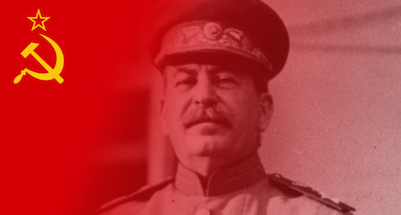Russian composers, performers and fans of music were encouraged by a fresh openness in musical expression which resulted in an unofficial music movement from the mid 1950s to the 1970s. However, many close to the scene have stated that it was not so much reforms related to Kruschchev's legislation covering the arts as it was an expression of his own personal taste.
Musicians were allowed access to previously restricted music by composers such as Pierre Boulez and Arnold Schoenberg which widened their “musical education” significantly. Two movements of music began to become identified from the late 1950s on: the creators of “official, sanctioned” music, approved by the Composers Union; and those involved with avant-garde, “underground” music, recognized as anti-Soviet. The latter consisted mainly of younger composers, who had broader access to previously unavailable music and who had not been disciplined by the demands of “Soviet realism” which was considered boring. To what extent the “unofficial” music activists were actual dissidents is debatable. Many say that the composers, who were seemingly taking an active role in opposing Soviet power, were in reality withdrawing from the norms of “Socialist realism”, and not genuinely asserting a rebelliousness for fear of hindering their possibility of professional advancement.
Nevertheless, avant-garde music gave audiences an alternative still not totally approved by Soviet authority. The effect of a relaxation of restrictions on listeners, performers and composers lasted into the 1970s. But a substantial part of the music that was created continued to be censored.
The reforms that gave birth to some avant-garde, unconventional compositions, prompted Krushchev to react in a typical heavy-handed, Soviet manner. In a 1963 speech he addressed the issue of freedom of expression in the arts: ” We flatly reject this cacophonous music. Our people can't use this garbage as a tool for ideology.” He continued by saying that “society has a right to condemn works which are contrary to the interests of the people.” Ideology, official cultural preferences and ultimate government control were still to be the parameters that regulated society. Except for a harsh intimidation of the population, this was not unlike Stalinist rule.
Both the cultural and political liberalization of Soviet society in essence ended in October 1964 with the removal of Krushchev from power. Leonid Brezhnev assumed the throne of the General Secretary of the Communist Party, implementing an authoritarian regime, halting any tendency of liberalization. With, amongst other repressions, the suppression of the 1968 Czechoslovakian Prague Spring, Brezhnev left a rigid totalitarian legacy for his successors, Yuri Andropov and Konstantin Chernenko to follow until the instalment of Mihkail Gorbachev.
Brezhnev started his despotic career with the Sinyavsky-Daniel show trial that grabbed international attention. In September 1965 writer and literary critic Andrei Sinyasky and writer/translator Yuli Daniel were arrested and charged with ostensibly having published anti-Soviet material abroad under pseudonyms Abram Tertz and Nikolai Arzhak. They were accused of writing novellas depicting Soviet society as menacing and occasionally surreal. Although the court hearings which began in February 1966 were closed to the public and foreigners, the process was amplified by a harsh media propaganda campaign. Daniel got seven and Sinyasky five years in a strict regime labour camp. In 1991 the Russian court rescinded the verdicts and ordered the case closed.
In spite of the wide-spread protests in the west, involving internationally prominent authors and scholars, including condemnation by the Scandinavian Communist parties, Soviet media was replete with renunciations of the two writers. Even recently crowned Nobel laureate Mihkail Sholokhov labelled the two “werewolves” and “thugs with a black conscience”, who would probably receive much harsher treatment in the “memorable twenties”. This was something a dyed-in-the-wool Stalinist would state. (To be continued.)
Laas Leivat




